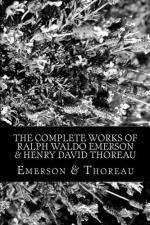|
This section contains 1,221 words (approx. 5 pages at 300 words per page) |

|
Cotton Mather vs. Henry David Thoreau on Native Americans
Summary: Both Cotton Mather and Henry David Thoreau put their views of Native Americans in writing based on the account of the capture of Hannah Dustan, a Puritan victim of Indian cruelty. In Mather's "A Notable Exploit: Dux Faemina Facti," part of his Magnalia Christi Americana, he puts forth a cynical attitude towards Native Americans. Thoreau, meanwhile, in his "Thursday" chapter of his A Week on the Concord and Merrimack Rivers, displays a more neutral attitude. Both authors prove a negative relationship between the natives and the settlers by displaying the barbarous behavior or violent actions of those whom they consider to be culpable of wickedness.
During the late years of the 17th Century, the Native Americans and Puritan settlers had struggled to get along. Due to their clashing views on political and cultural issues, neither faction regarded the other as a respectable group. Instead of enacting a truce, the two peoples decided to vanquish their enemy by pugnacious means. Both "A Notable Exploit: Dux Faemina Facti" from Cotton Mather's Magnalia Christi Americana and "Thursday" from Henry David Thoreau's A Week on the Concord and Merrimack Rivers were written based on the account of the capture of Hannah Dustan, a Puritan victim of Indian cruelty. Cotton Mather displays a totally antagonistic view towards the Indians, while Thoreau exhibits both the barbarous side of the Indians and the Puritans. Both authors prove their point of a negative relationship between the Indians and settlers by displaying the relentlessness, barbarous behavior, or violent actions of whom they...
|
This section contains 1,221 words (approx. 5 pages at 300 words per page) |

|


